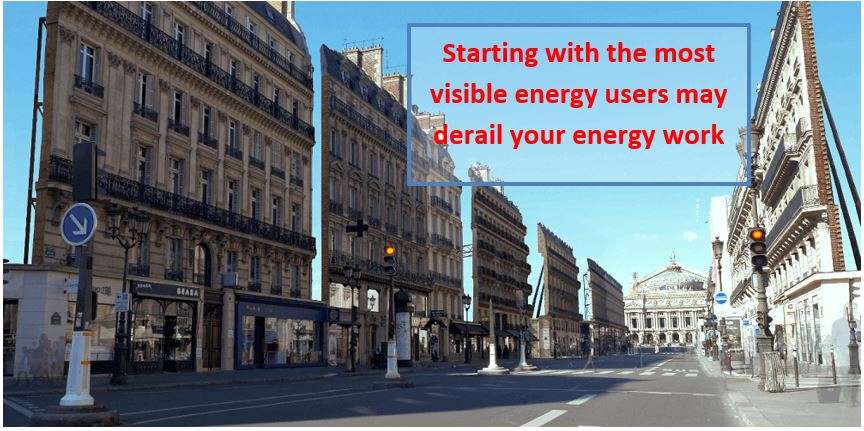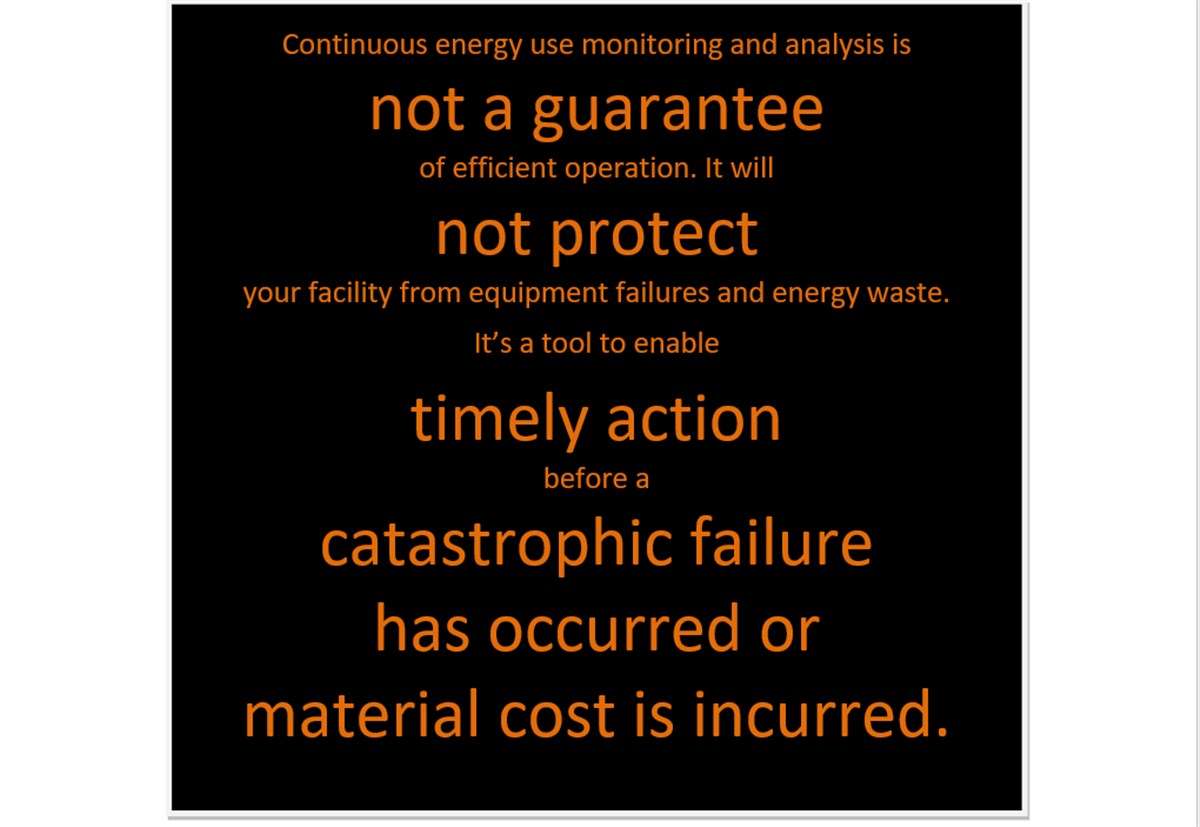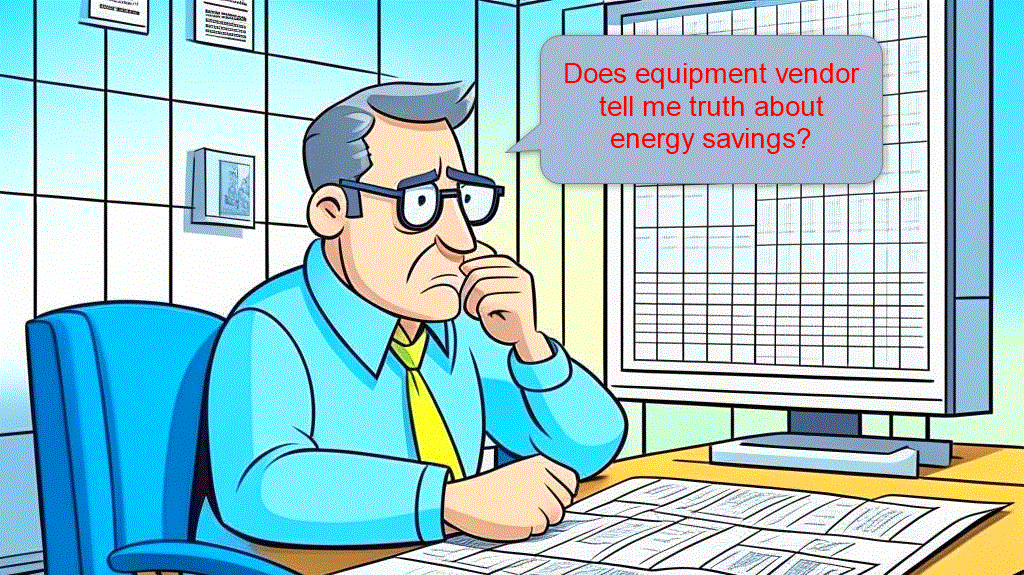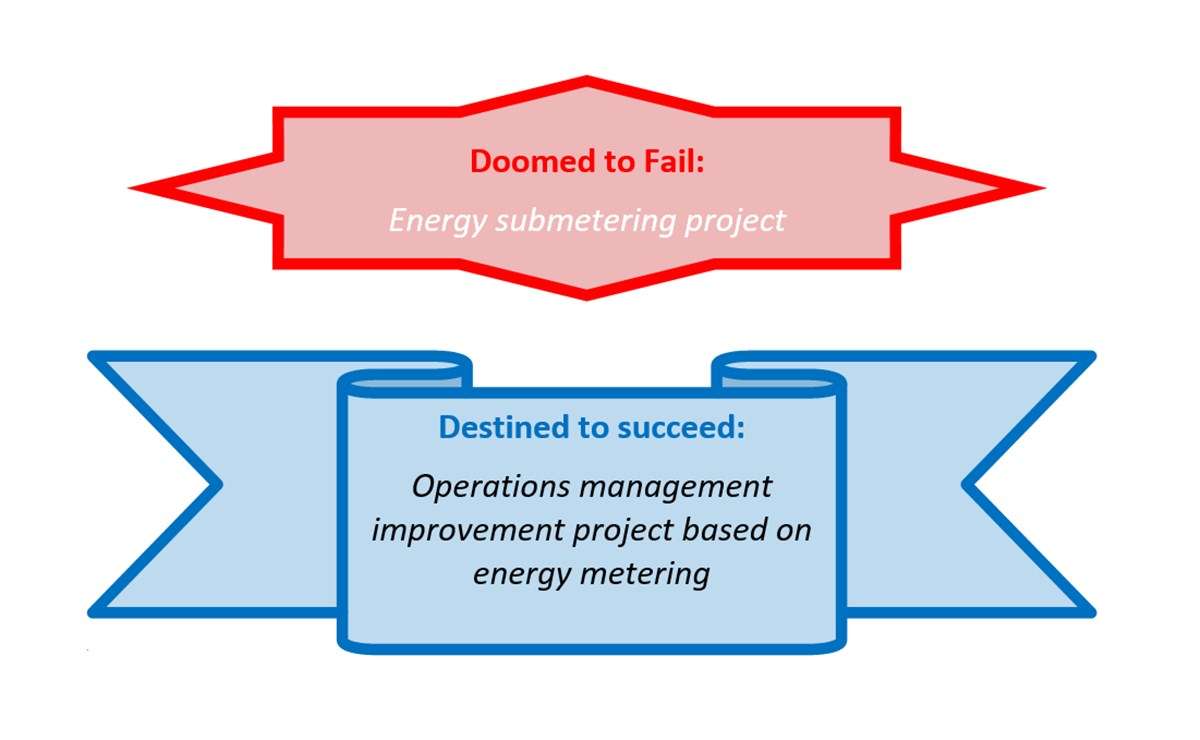A friendly maintenance manager told me recently: “We will first do all we can with our big energy users and then proceed to an energy audit”.
‘Big ticket items first’ approach to energy management may hurt business and can hurt maintenance manager personally. This hurt can be avoided.
If started right, big and impactful energy projects will follow small and easy to implement, just like these dominoes:

Falling dominoes were built and filmed by Stephen Morris as described here. Every next piece is 50% bigger. The smallest one is only 5 mm tall. Refresh your window to see how these dominoes fall again; this time imagine these are energy projects you have successfully implemented.
5 reason why starting energy management with big energy users may hurt your business
- Attacking big energy users requires big CAPEX, which is always hard to secure.
Approval of big projects without a track record of implementations may be difficult. If capital is scarce, failure to secure investment into big changes may kill management’s appetite to energy work altogether. Big ticket approach is widely supported by equipment vendors who work towards sales quotas.
- Implementation of one big project may hurt profitability of another
Example: If HVAC is upgraded prior to lighting retrofit, the efficient chiller may be forced to work in low inefficient mode much longer. Chiller savings will be lost.
- Small projects may make big projects more profitable or unnecessary
Simplest examples: fix compressed air leaks and a bigger compressor is not required anymore, redirect reject heat and a smaller boiler will provide enough heating.
- Big projects typically have longer paybacks, while creating energy management momentum requires quick wins.
- Installation of a super efficient boiler (compressor, motor, etc) will not help much if the machine is misused.
Hasty climbers have sudden falls. How will it feel professionally if after big investments have been made, an audit will show that they were not necessary or contradict each other?
An alternative approach is to start with a comprehensive energy audit, which will create a map of opportunities and assess their interconnections, rank opportunities by profitability. Finding simple ways to create savings will create trust and respect from management, leading to easier approval of bigger projects.







Leave A Comment